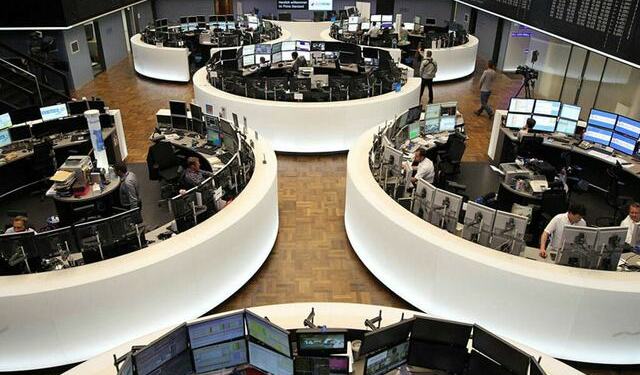The raft of recent policy measures by the European Central Bank are working and should help push eurozone inflation back up to levels compatible with healthy economic growth, both its president and chief economist said on Thursday.
“The measures we announced on March 10 will further contribute to achieving our aim of price stability,” ECB chief Mario Draghi said in a speech in Lisbon.
Addressing the Portugese council of state, Draghi acknowledged that “of course, it will take time for these latest measures to start working their way through the economy and delivering their full benefits.”
Nevertheless, they constituted a “substantial package which gives priority to loans for households and businesses, thus further supporting economic activity in the euro area,” the president argued.
“They underline our determination to fulfil the mandate entrusted to us, namely to bring inflation back to below, but close to, two percent.. These measures also show we have no shortage of tools available,” Draghi said.
At a meeting on March 9 and 10, the ECB’s governing council fired off a new volley of shots in its ongoing battle to avert deflation in the euro area and jumpstart economic recovery in the region.
The ECB slashed already record-low interest rates, said it would pump massive new sums into the banking system and, for the first time, would start buying corporate bonds.
– Negative inflation –
In a separate speech in Frankfurt, the ECB’s chief economist Peter Praet said that consumer prices in the euro area would have declined last year and economic growth would be weaker than it is if it had not been for the measures.
“In the absence of our policy package inflation would have been negative in 2015,” Praet said, countering growing criticism that the ECB’s policy measures are proving ineffective.
“In 2016, it would have been at least half a percentage point lower than we forecast currently and around half a percentage point lower in 2017,” Praet said.
The ECB is currently pencilling in an annual inflation rate of just 0.1 percent for this year and 1.3 percent next year.
Turning to economic growth, “the impact of the policy measures on euro area GDP (gross domestic product) is also sizeable,” Praet said.
“According to the staff assessment, our policy is contributing to raise euro area GDP by around 1.5 percent in the period 2015-18.”
Praet stressed that the ECB’s policy moves measures coincided with new economic shocks, such as the plunge in oil prices.
“The monetary policy package the ECB has adopted since June 2014 has been effective,” Praet insisted.
But the ECB should not be seen as the sole solution to the eurozone’s economic woes and other policy areas must also act, he said.
“We have consistently maintained since summer 2014 that a strong and sustainable recovery the crisis requires a comprehensive response that involves all economic policies. A return to higher structural growth and employment cannot depend on monetary policy,” Praet said.
Draghi sent the same message.
“The ECB cannot single-handedly create the conditions for a sustainable recovery in growth,” he said in Lisbon.
“Our policies can support a cyclical recovery, but they cannot by themselves remove structural impediments to growth. This requires a concerted effort in terms of economic and fiscal policies,” the president insisted.


























